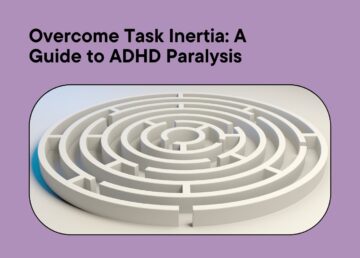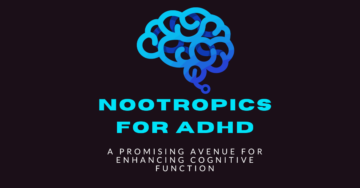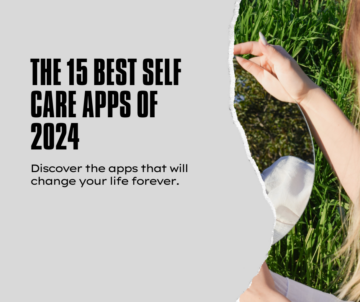
Technology paved the way for many great inventions and day-to-day life improvements, one of them being accessibility to health services and products, such as mental health apps.
The increased usage of smart gadgets has opened up new opportunities for receiving services, such as medical consultations online, which increases the accessibility to treatment options or information.
Since most adults nowadays own a smartphone or other electronic device that allows them to explore the vastness of the internet, various applications, including mental health apps, have also gained popularity in recent years.
The Efficiency of Mental Health Apps
The rise of mental health apps and their usage reflects a growing awareness of the importance of mental health and well-being in modern society.
The topic of mental illnesses is not as stigmatized as before, proving that the general public has become more aware of their mental well-being and is looking for ways to improve it. As a result, various applications based on therapy and mindfulness came into play.
Mental health apps offer a convenient, affordable, and easily accessible way to manage emotional well-being.
Likely the most significant advantage of such apps compared to traditional therapy is the flexibility – they can be used anytime, anywhere. A person chooses a time and place convenient for them and their schedule.
Though it’s worth mentioning that mental health apps can rarely be the standalone solution to mental illnesses or disorders – their efficiency is still being studied.
Current trends
A rule of thumb for any online application is to be user-friendly and engaging, which makes most mental health apps fun to use and learn from. Though, as with any digital product, user engagement is required for them to work as efficiently as possible.
The current market of mental health apps offers a variety of therapeutic services, such as:
- Cognitive behavioral therapy (CBT)
- Interpersonal therapy
- Acceptance and commitment therapy
- Mindfulness
- ADHD apps
The above-mentioned approaches to mental health conditions have different purposes, and their efficiency is still being researched.
However, mental health apps, especially those with a cognitive behavioral therapy framework, have been found to be effective for both children and adults in reducing anxiety and symptoms of depression.
There have also been studies comparing mental health apps to face-to-face therapy sessions, and in some cases, digital tools displayed more favorable results.
Though the main issue with mental health apps currently is the drop-out rate – it is significantly higher compared to meeting a therapist in person.
CBT-Based Self-Help Apps
As mentioned, applications with a CBT framework have proven effective for mental self-help.
CBT, in essence, aims to help people change their thinking and behavior patterns – that’s where CBT-based applications stand out.
The Sensa app is based on CBT principles and, thus, offers guidance and support for a user that wants to improve their mental health. Each user is given multiple tools, lessons, and advice to manage their stress and anxiety levels and improve other mental health concerns.
Sensa as a mental health app
The Sensa app is designed for people as a tool to build better habits and assist with various mental health conditions. Sensa offers several features that support the user:
- My Plan – designated reading material with a related to-do activity. This feature mainly focuses on giving users content and materials to understand their feelings and cognitive processes.
- Activities – a feature that aids with daily activity planning and keeping track of them. It also benefits people who want to incorporate more healthy and mindful activities.
- Mood journal – allows users to track their daily mood and write a journal entry about what affects it. This feature also helps people to see their weekly average, which provides insights into how their emotional state changes.
- Assessments – a feature designed to evaluate the user’s mental state based on stress, anxiety, and depression levels. The DASS-21 assessment is not a medical diagnosis but rather a tool that gives the user insight into their emotional state and how it varies.
- Quick-Relief is a feature full of various physical, mental, and breathing exercises to aid the user in times of stress and intense feelings.
Traditional Therapy and Mental Health Apps
Therapy and psychiatric treatment are typical approaches to treating mental health conditions and disorders. A licensed therapist can offer medical treatment, which mental health apps often lack.
Hence, self-help apps cannot replace therapy and aim to cure, treat, or diagnose clients for any medical condition. It might raise a question of why tools like this exist in the first place.
Mindfulness and mental health applications can be highly beneficial in between therapy sessions and offer guidance, reminders, and support on a day-to-day basis.
In addition, self-help apps are valuable as preventative means or as a supporting option while waiting for medical treatment, if the treatment is currently unavailable, or if any other means are preventing a person from receiving help.
The Future of Mental Health Apps
As the topic of mental health becomes more relevant and technology continues to evolve, it is believed that mental health apps will become even more efficient and advanced in the future.
Some studies suggest that the integration of artificial intelligence (AI) and augmented reality (AR) technologies will be adopted to create immersive and interactive environments for people to practice therapeutic techniques and mindfulness.
Although mental health apps are not a replacement for traditional therapy, they offer an excellent, practical, and user-friendly way to explore oneself, understand the underlying reasons for the problem, and offer guidance and support on a day-to-day basis.
The Sensa app is specifically designed to be a tool that helps cope with anxiety and stress and gives guidance for navigating other existing mental health problems.





